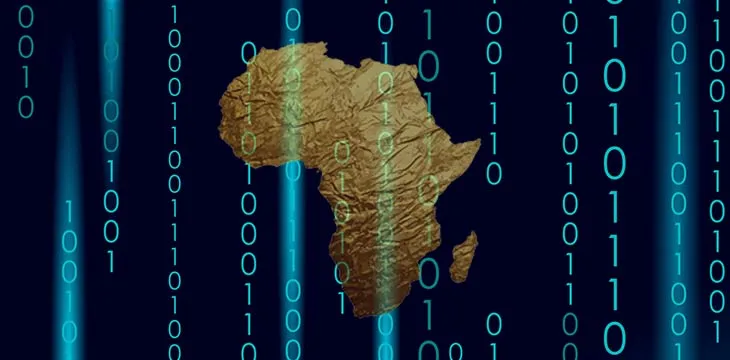|
Getting your Trinity Audio player ready...
|
The African continent has historically lagged behind other nations, especially in technology. For one, the number of internet users is way below other continents. According to the International Communication Union, only 36% of Africans have access to the internet. In comparison, internet penetration in North America stands at 95%, with Europe standing at 85%. While some countries such as Kenya have an 85% penetration, others such as Eritrea and Chad are below 5%.
With this in mind, you would be forgiven for thinking that Africa would take a backseat as the rest of the world explores blockchain technology. However, Africa has been anything but.
Startups have sprung up across the continent, all seeking to apply blockchain technology to solve the continent’s challenges. Just recently, a South African coffee company announced that it was using blockchain technology to track its coffee supply from Uganda. The firm, Carico Café Connoisseur, has already delivered tons of coffee in South Africa using the blockchain network.
This is just the latest in a rapidly growing number of startups exploring blockchain technology. In Rwanda and Kenya, the blockchain is being used to solve land registration, an issue that has been the source of conflict in the two countries. In Congo, IBM partnered with Ford to monitor the mining of cobalt and track it to the final consumer. The partnership aims to stamp out child labor in the mining industry, a rampant challenge, especially in Congo.
BitPesa has been facilitating millions of dollars between Africa and its trading partners using blockchain technology at just a fraction of the cost. Ugandan blockchain startup Wala has partnered with the Prince of the Buganda kingdom to bring electricity to hundreds of thousands of households, creating 200,000 jobs in the process.
The examples of the impact that blockchain technology is having on the continent are endless.
However, just as there are plenty of opportunities, there are also plenty of challenges. One of the challenges is the low internet penetration. While developers are working on integrating decentralized applications to work on USSD, most applications require internet connectivity. The distribution of blockchain startups springing up is a testament to the impact that internet connectivity has. The most successful startups have been from countries with high internet penetration such as Kenya, Nigeria, South Africa and Egypt.
Funding is an equally crippling challenge for the African blockchain industry. For one, not many angel investors are willing to stake their money with technology that a majority of Africans aren’t conversant with.
I recently had a chat with Oluwole Ogunlade, and he reiterated the adverse effect that lack of funding has on the African startup industry. Ogunlade is an executive at VoguePay, a Nigerian online payments startup that processes over $1 million daily. VoguePay grabbed headlines after it partnered with Interpol in a blockchain venture to track financial transactions for any irregularities.
He explained:
“In the U.S. and other such regions, there’s always someone to invest in you if you have the smallest of ideas. Moreover, if a startup fails, you get support to get back on your feet and explore other options. In Africa, it’s a different story. First, the number of investors willing to invest in an unproven idea is very minute. And if a startup fails to achieve the success you expected, you are automatically branded as a failure.”
Despite these and many other challenges, developers and innovators have continued to develop more use cases for blockchain technology. With time, Africa could compete with other global giants. The future looks bright.

 07-12-2025
07-12-2025 





